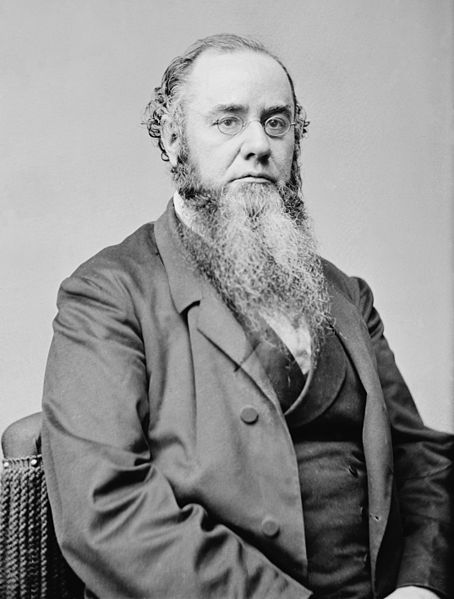 |
| Porter |
After his disastrous defeat by Robert E. Lee in the Battle of Second Manassas, one of the men who Union commander John Pope blamed for his defeat was Fitz John Porter. Porter, commander of the V Corps brought up from McClellan's army, was no friend of Pope. He complained of Pope's management of the army to another enemy of Pope, Ambrose Burnside, who forwarded these communications to McClellan, Henry Halleck and Abraham Lincoln among others. During the battle, Pope's order to Porter was very confusing and unclear. Porter did not attack, and the order did not require him to. Pope sent another message explicitly ordering Porter to attack, but his nephew, carrying the order, got lost and delivered the message late. Porter decided that it was impossible to obey it. In both these instances, Pope had launched other costly attacks elsewhere on the field, which he expected to be aided with attacks from Porter. On the next day of battle, Porter's corps did assault, and suffering heavy casualties they nearly broke Stonewall Jackson's line, but were driven back by Longstreet, who had arrived on the field.
On November 25th, after his friend, George B. McClellan, was removed from command for his failure to follow up on the Union success at Antietam, Porter was arrested and relieved of his command. He was charged with two violations of the Articles of War, the military regulations passed by Congress, in disobeying a lawful order and misbehaving in front of the enemy. The punishment for these could be very severe, even up to execution. Porter pleaded not guilty to all charges.
 |
| Stanton |
Traitor to my country! When did treason so peril and labor to rescue it from destruction?... If the charge had not assumed the solemn form that has been given to it, it would be received everywhere where my whole conduct is known, as ludicrous, false, or the creation of a morbid or distempered brain.On January 21st, 150 years ago today, the court found Porter guilty of both charges, and sentenced him “to be cashiered and to be forever disqualified from holding any office of trust or profit under the Government of the United States.”
 |
| Porter and staff |
After the war Porter wrote to Lee and Longstreet, and they gave him their accounts of the battle. Using this new evidence and with the support of now famous generals such as Grant, Sherman and Thomas, he was able to gain a retrial in 1878 under Gen. John Schofield, with the approval of President Rutherford B. Hayes. It reversed the previous decision, saying:
What General Porter actually did do, although his situation was by no means free from embarrassment and anxiety at the time, now seems to have been only the simple, necessary action which an intelligent soldier had no choice but to take. It is not possible that any court-martial could have condemned such conduct if it had been correctly understood. On the contrary, that conduct was obedient, subordinate, faithful, and judicious. It saved the Union army from disaster on the 29th of August.The retrial was still a very controversial issue, and there was enough opposition from the radical Republicans that Hayes would not approve the trial. The next president, James A. Garfield, had actually been part of the court and had voted to convict Porter. But Garfield was assassinated and his successor, Chester A. Arthur, on May 6, 1882, restored Porter's citizenship and his ability to hold public office, while still upholding Porter's first conviction and ignoring the Schofield Commission. Later, Congress passed a bill over Arthur's veto restoring Porter's rank in the regular army. Nearly a quarter of a century after his conviction, Porter's name had been cleared. He retired from the army a few days later, and was pardoned by President Grover Cleveland on August 5, 1886.


0 comments:
Post a Comment